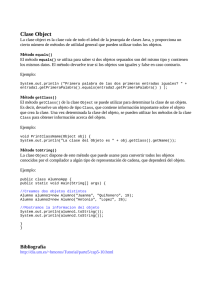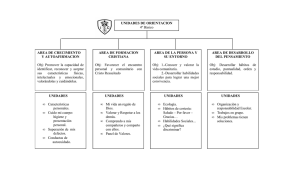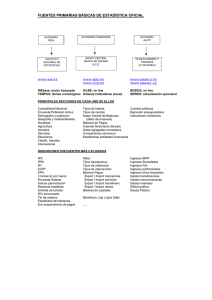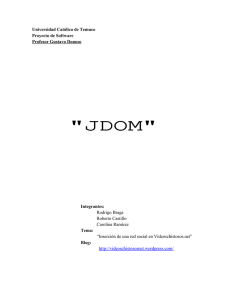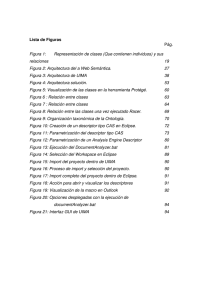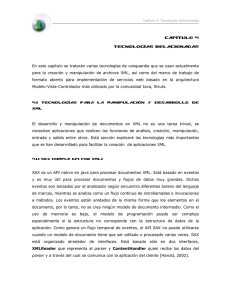import org.jdom.Element
Anuncio
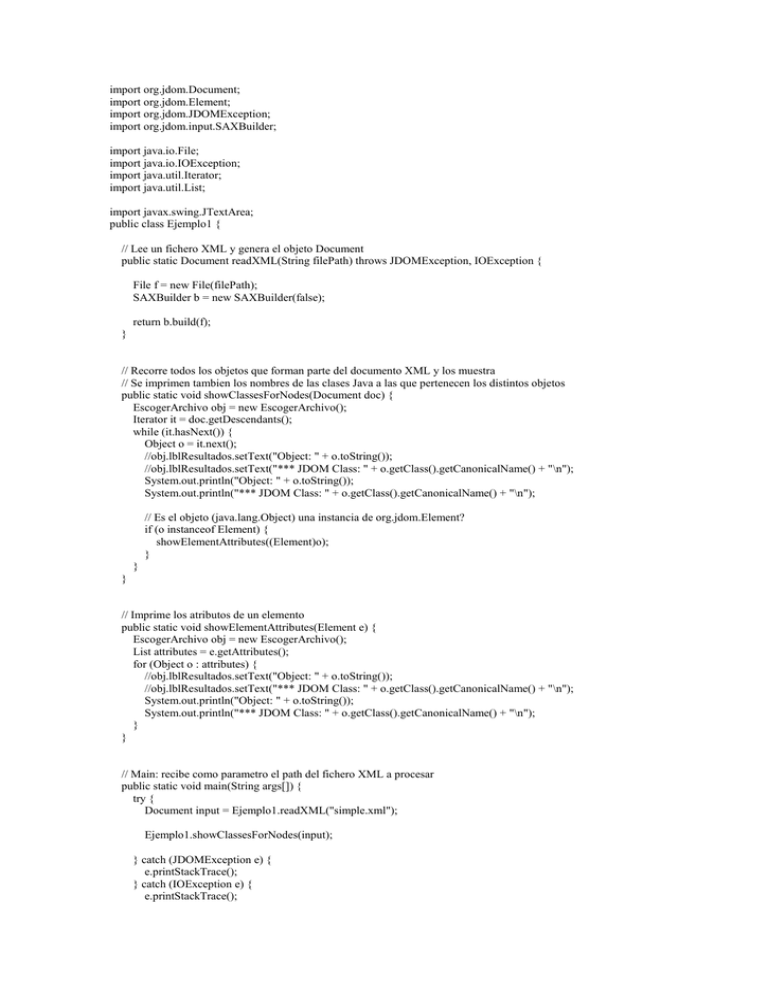
import org.jdom.Document;
import org.jdom.Element;
import org.jdom.JDOMException;
import org.jdom.input.SAXBuilder;
import java.io.File;
import java.io.IOException;
import java.util.Iterator;
import java.util.List;
import javax.swing.JTextArea;
public class Ejemplo1 {
// Lee un fichero XML y genera el objeto Document
public static Document readXML(String filePath) throws JDOMException, IOException {
File f = new File(filePath);
SAXBuilder b = new SAXBuilder(false);
return b.build(f);
}
// Recorre todos los objetos que forman parte del documento XML y los muestra
// Se imprimen tambien los nombres de las clases Java a las que pertenecen los distintos objetos
public static void showClassesForNodes(Document doc) {
EscogerArchivo obj = new EscogerArchivo();
Iterator it = doc.getDescendants();
while (it.hasNext()) {
Object o = it.next();
//obj.lblResultados.setText("Object: " + o.toString());
//obj.lblResultados.setText("*** JDOM Class: " + o.getClass().getCanonicalName() + "\n");
System.out.println("Object: " + o.toString());
System.out.println("*** JDOM Class: " + o.getClass().getCanonicalName() + "\n");
// Es el objeto (java.lang.Object) una instancia de org.jdom.Element?
if (o instanceof Element) {
showElementAttributes((Element)o);
}
}
}
// Imprime los atributos de un elemento
public static void showElementAttributes(Element e) {
EscogerArchivo obj = new EscogerArchivo();
List attributes = e.getAttributes();
for (Object o : attributes) {
//obj.lblResultados.setText("Object: " + o.toString());
//obj.lblResultados.setText("*** JDOM Class: " + o.getClass().getCanonicalName() + "\n");
System.out.println("Object: " + o.toString());
System.out.println("*** JDOM Class: " + o.getClass().getCanonicalName() + "\n");
}
}
// Main: recibe como parametro el path del fichero XML a procesar
public static void main(String args[]) {
try {
Document input = Ejemplo1.readXML("simple.xml");
Ejemplo1.showClassesForNodes(input);
} catch (JDOMException e) {
e.printStackTrace();
} catch (IOException e) {
e.printStackTrace();
}
}
}
